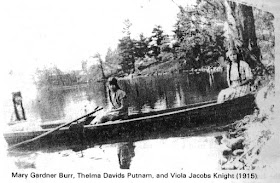This timeline is based on a multitude of sources. Ask me if you want documentation for anything:
1773: John Sergeant [Jr.] takes on the mission work in
Stockbridge, Massachusetts.
1782: Ninety innocent Christian Indians are massacred in
Gnadenhutten, Ohio by a renegade frontier militia.
August, 1787: Tribal leaders call an old friend, Rev. Samson
Occom, a Mohegan Indian, to be their minister in New
Stockbridge, New York.
October, 1787: John "Sergeant [Jr.] - also an old friend - is appointed by a new mission society to live and work at New
Stockbridge.
July, 1788: A dispute between
Rv.
Occom and Rev. Sergeant splits the
Stockbridge Mohicans into two churches.
July 1792: The result of Rev.
Occom's unexpected death is a reunited church.
August, 1805: Having traveled across the Atlantic, Dorothy Ripley, an Englishwoman not connected with any church body, preaches to the New York Indians. She is especially well received by the women of New
Stockbridge.
1818 to 1829: A period of western migration. Deacon John
Metoxen is the leader of a new church organized with Rev. Sergeant's help. The
Stockbridge Mohicans conduct their own worship services when no missionaries are around.
1824: John Sergeant [Jr.] dies at New
Stockbridge, NY.
Circa 1826: Tribal leaders write a letter asking that a missionary be sent to their new location.
1828: Having already replaced Sergeant in NY and visited the tribe on the Fox River (what is now
Kaukauna, WI), Jesse Miner moves his ministry to what is now Wisconsin.
1830: Calvin
Colton, a Presbyterian minister, observes that the
Stockbridge Mohicans treat their tribal Bible with reverence.
1830 - 1848: Cutting Marsh replaces Miner as missionary. After a honeymoon period of a few years, the Indians find Marsh to be rather stern and stubborn. Marsh found it difficult to stay out of tribal politics which became very contentious in the last 11 years of his tenure.
1833: John
Metoxen, John N. Chicks, two other
Stockbridges and Cutting Marsh conduct a mission trip to the
Sauk Indians in and around Davenport, Iowa.
1833-1834: Tribe moves to what is now Calumet County [WI].
1837-1839: A faction of the tribe breaks away from Marsh's church and holds their own Baptist services. Eventually this group emigrates to what is now Kansas under the treaty of 1939.
1844: Wesson Miller, a Methodist circuit rider, holds a revival meeting in Jacob Chicks' barn. Some members of the Citizen Party leave Marsh's church to become Methodists.
1845: Jeremiah
Slingerland - a
Stockbridge Mohican - graduates from Bangor Theological Seminary. He moves back to
Stockbridge, Wisconsin Territory, and takes on the work of schoolteacher and assistant to Rev. Marsh.
1848: The Indian Party makes a treaty to move west of the Mississippi, Citizen Party members are on their o
wn. After much conflict between Marsh and
Slingerland, Marsh leaves his post and dissuades the mission society from supporting
Slingerland's ministry.
1850 - 1857: The Indian Party stays put and pays
Slingerland and two white ministers to preach.
1856: A treaty brings the Indian Party and the Citizen Party, plus remnants of other tribes - especially
Munsees - together on a new reservation in
Shawano County [WI].
1857: Jeremiah
Slingerland and his wife move to the new reservation. Worship services
ae held in their home.
1859 - 1863: Jeremiah
Slingerland preaches in the town of
Shawano before the first white minister comes to town.
1866: More than twenty years after
graduating from the seminary, Jeremiah
Slingerland is finally ordained as a Presbyterian minister.
1867: After conducting their worship either informally, or in cooperation with the Methodists, the
Stockbridge Mohicans finally have their own Presbyterian church again.
1881: Stephen Gardner and others attend Roman Catholic midnight mass on Christmas Eve on the Menominee Reservation. Under Gardner;s leadership, Roman Catholicism gains a foothold among the
Stockbridge Mohicans for the fist time.
1884: Rev.
Slingerland dies and the Presbyterian church fades without his leadership.

























